 Free shipping from CHF 90.00
Free shipping from CHF 90.00 
Discover the variety of "open tea": high-quality loose tea, aromatic tea leaves and pure tea enjoyment await you. Ideal as an alternative to coffee!
Prompte und schnelle Lieferung, war alles tiptop
Viele sehr gute Kaffeesorten, rasche Lieferung, sehr guter Service und das nicht nur für Kaffeemaschinen - kann ich als langjährige Kundin nur empfehlen. Und die kleinen Leckereien, einfach echt italienisch!
Ich schätze sehr, dass ich nachlesen kann, welchen Charakter der Kaffee hat. Für mich ganz wichtig - die Säure. Je weniger desto besser für mich
Bestelle schon lange meinen Kaffee hier und war immer zufrieden. Hat immer alles geklappt und werde weiterhin meinen Kaffee gerne hier bestellen.
Tolle Auswahl, super Preise und Service!
Bisher waren Service - bei der Wartung meiner Rocket und die Lieferungen von Café immer pünktlich und entsprechend meiner Erwartungen! Bin gespannt wie es bei Euch weiter geht! Ich selbst bin selbständig und kann Eure internen Prozesse gut anhand meiner eigenen Erfahrungen verstehen. Danke für Eure Transparenz!
Bestellung einwandfrei uns schnell geliefert. Vielen Dank!
Sehr um den Kaffegenuss bemüht. Grosse Auswahl an Kaffee, Maschinen und Zubehör
Online eine Kaffemühle bestellt und mit dem Service und Geschwindigkeit sehr zufrieden.
Leckeren Cafe und sehr schöne Gläser und Zubehör. Es lohnt sich mal zu stöbern
Gute Auswahl an Kaffeesorten, Abwicklung von Kauf und Lieferung funktioniert gut.
Top Service, gute Erreichbarkeit, freundlich, gute Qualiät. Danke euch
Kaffeesortiment, das mich anspricht und schnelle Lieferung. Bei Fehler meinerseits unkomplizierte Korrektur. Beziehe seit langem Kaffee bei der Kaffeezentrale und bin sehr zufrieden.
Große Auswahl, unkompliziert, schneller Versand, einfach nur top, immer gerne wieder, Ihr seit super !!!!
Der Kaffee war immer sehr gut und die Lieferung via Planzer speditiv. Dreifaches Lob; fünf Sterne Ich bestelle (5x350gr Espresso Bio, Bohnen) immer am Sonntag, bearbeitet und Versand ist am Dienstag. So erhalte ich die Lieferung meistens am Donnerstag. Das Paket hat genau die Grösse für meinen "Milchkasten".
Seit einigen Jahren mein Favorite go to Shop für den Lieblingskaffee, aber auch für das eine oder andere Experiment durch das tolle Sortiment. Guter Preis, schnelle Lieferung! Lg
Alles hat tip top geklappt. Schneller Service, einfache Administration und Ontime Lieferung.
Sehr gute Kaffeequalität und mega schnelle Lieferung
Immer beste Ware zu vernünftigen Preisen, wir sind sehr zufrieden mit der Kaffeezentrale Schweiz!
Gute Produkte schnelle Lieferung
Qualitative guter Kaffee und prompte Lieferung. Fanden immer wieder neue Sorten zu entdecken. Waren und sind sehr zufrieden mit der Kaffeezentrale.
Die Kaffeezentrale ist in JEDER Hinsicht absolut empfehlenswert. Es stimmt einfach alles : Bestellwesen, Preisgestaltung, Lieferfrist, Versand, Freundlichkeit Fachwissen. Ein grosses DANKESCHÖN !!!
Ich bin nun Kunde seit vielen Jahren und bin bisher immer sehr zufrieden mit den Produkten im Food und Non Food Bereich. Schön das es Euch gibt und Ihr Anstrengungen unternimmt, Kundenfeedback ernst zu nehmen und umzusetzen.
Ich war die letzten 6 Jahren immer mit den Produkten, dem Preis und euch zufrieden.
Breites Sortiment, einfacher und zuverlässiger Service
Am Sonntag habe ich bestellt, am Dienstag stand das Paket vor der Haustür. Und dies einen Tag vor Weihnachten!
Nur wenige Firmen gehen so ehrlich mit sich und der Kundschaft um. Dafür alles Gute und weiter so. Qualität vor Quantität is das Credo
Ich habe meinen Lieblingskaffee gefunden und werde dabei bleiben. Natürlich bei der Kaffeezentrale.
Ausser Nicht-Lieferbarkeiten auch über längere Zeit (Monate) hinweg, habe ich nichts zu bemängeln. Ich hätte mir aber gewünscht (und wünschte mir) als Käufer von Kaffeebohnen mehr Angaben dazu welche Art Kaffeegeschmack ich erwarten kann, WIE kräftig, wie reich, wie intensiv, wie 'dunkel' sein Aroma. Ich (1-Personen-Haushalt) mag vor allem starken Milchkaffee. Ich habe seit nun bald 6 Jahren eine Siebträgermaschine und habe seither viele Kaffeesorten probiert, immer Notizen dazu gemacht und sie für mein Bedürfnis taxiert. Bin aber erst heute(!) an dem Punkt wo ich glaube, zwei Kaffees gefunden zu haben die mir wirklich gut schmecken. Es sind dies der "Mastro Lorenzo" und der "Illy Gourmet Napoli". Ich wünschte mir, ich hätte diese schon früher 'entdeckt' - anhand der Beschreibung.
Klappt immer alles gut! 👍
Eigentlich müssten es 3* sein, da wir ja nicht in Nordkorea sind. Aber für mich verhält es sich wie bei der Lieblingsautomarke (bei mir einer indisch/englischen 😉): man sagt sich, bei nächster Gelegenheit wechsle ich. Aber ich tu‘s dann trotzdem nicht. Weil man es lieb gewonnen hat, weil‘s anderswo trotzdem nicht „besser“ sein wird und weil‘s ja eigentlich passt und man bekommt was man möchte oder braucht. So ist es für mich mit der Kaffeezentrale seit ich vor etwa 15 Jahren (oder ist es noch länger her) meine erste Maschine gekauft und in Uster einen Baristakurs absolviert hatte. Aber eine Bitte: wenn ihr auf Rezensionen antwortet, dann auf keinen Fall (!) in irgendeinem komischen Schweizerdeutsch, sondern immer in gleicher Sprache wie die Rezension sowie stilistisch und grammatikalisch einwandfrei. Alles andere ist unprofessionell 😉
Der Kaffee ist einfach mega
Ich bin ein langjähriger Kunde und eigentlich sehr zufrieden. Wie vorhergehende Kunden schon rezensiert haben, geht es auch mir seit rund 2 Wochen so, dass ich eine offene Bestellung habe und weder auf Email- oder Facebook-Anfragen reagiert wird. Bei der Hotline geht es nach der Frage nach Beratung Kaffeemaschine, Bestellungen etc. nicht mehr weiter. Ich hoffe es ist alles okay bei euch? Bitte checkt und beantwortet doch eure Emailanfragen.
Sehr nette Beratung für E.S.E.-Pads. Immer schön, wenn sich jemand gut auskennt und das Wissen auch gerne teilt. Komme sicher wieder!
Sehr gute Beratung! Besten Dank!
Ich habe schon ein paar Bestellungen bei der Kaffeezentrale getätigt und war damit immer zufrieden. Die Auswahl an Produkten ist gut und oft konnte ich das Gesuchte sonst in der Schweiz nicht finden. Die Pakete wurden jeweils rasch geliefert.
Ich bestelle seit Jahren bei der Kaffeezentrale - und seit meine Frau ebenfalls Kaffeetrinkerin geworden ist, noch etwas häufiger als früher. Wir schätzen dabei den persönlichen Service (bei Bedarf) und das breite Angebot. Der Shop könnte meiner Meinung nach etwas übersichtlicher gestaltet sein (Stichwort = Frisch geröstet wird erst am kommenden Montag geröstet und am Mittwoch versandt is. m. E. nicht gut gekennzeichnet), Da wir immer mal wieder in etwa dasselbe bestellen, wäre auch der Weg zu früheren Bestellungen etwas einfacher gewünscht. Meinem Gefühl nach, funktioniert auch die Suche nicht optimal etc. Aber Puncto Kaffee top :)
Immer zeitnah Anfragen beantwortet, sehr guter Service, absolut top!
In jeglicher Sicht eine Topleistung. Sei es der Kaffee und seine hervorragende Qualität oder die stets prompte Lieferung
Die Kaffeezentrale begeistert mit ihrer herausragenden Auswahl und dem unvergleichlichen Aroma. Jeder Schluck ist ein Genuss, der den Tag veredelt. Der Service ist freundlich und kompetent, die Qualität konstant hervorragend. Für Kaffeeliebhaber ein wahres Paradies – hier findet man den perfekten Kaffee für jeden Geschmack. Absolute Empfehlung für echten Kaffeegenuss!
Super schnelle Lieferung und sehr guter Preis! Gerne wieder 😃
Ich erhalte immer alles sehr schnell .
Gute Auswahl, schnelle Antwort bei Anfragen und gute Service Qualität.
Von A bis Z alles top!!! Jedes Mal mega schnelle Lieferung. Weiter so!
Kaffebestellung ESE Pads schnell geliefert. Freundlicher Kontakt bei Bezahlabwicklung. Werde wieder bestellen. Vielen Dank
Sehr gute Service, grosse Auswahl, schnelle Lieferung
Habe online ein Vollautomaten-Probierset bestellt (1 kg Kaffee). Erhalten habe ich Stoll Hausmischung (250g), Henauer Irlanda Espresso (250g), Cerutti "il Caffè" Argento (250g) und Kaffa Wildkaffee Medium (220g). Hier wäre kritisierbar, dass keine 1000g effektiv geliefert wurde! Anderseits kostete das Paket 28 Franken und beinhaltete einen Warenwert von 29.80. Stoll Hausmischung kannte ich bereits, die anderen Sorten nicht. Auf der Webseite werden alle, ausser jener von Cerutti, als Vollautomatenkaffee deklariert. Cerutti für Siebträger: ich bin gespannt, ob der im VA überhaupt gut funktioniert. Weshalb man trotzdem den Kaffee in einem Vollautomatenset liefert, verstehe ich nicht ganz. Lieferung erfolgte sehr schnell. Der im Shop angegebene Tassenpreis erscheint mir zu tief, da eher mehr wie 7g Kaffee pro Tasse verwendet wird.
Kaum bestellt, schon geliefert!
Online purchase of coffee beans (used the producer' website in the past, but the producer has changed payment conditions)
Schneller Versand und top Auswahl. Kundenservice absolut kompetent und freundlich!
Kaffee schnell geliefert. Alles Tipp topp
Best acrossed project 🥰
Die Website könnte verbessert werden. Nicht alle Produkte sind über die Kategorien im Menü erreichbar und die Suche funktioniert auf dem Mobile nicht gut. Lieferung war schnell und Produkte in Ordnung.
Ich kann für Essen, Service und Ambiente keine Sterne vergeben, weil ich dort jeweils nur Kaffee bestelle. Dieser Prozess ist aber eigentlich sogar mehr als fünf Sterne wert.
super service, immer freundlich wenn mal was ist! und grosse auswahl an kaffee und allem möglichen zubehör.
top zuverlässiger Lieferant mit gutem Angebot. Ich beziehe meinen Kaffee seit über 10 Jahren bei der Kaffeezentrale
Einkaufen rund um Kaffee. Bedienung war ausgezeichnet. Ambiente sehr sachlich. Etwas lieblos. Viele exzellente Kaffemaschinen in der Ausstellung.
Ich hatte ein Problem mit meiner Mühle und war seit einer Woche verzweifelt daran es selbst zu reparieren. Habe dann bei der Kaffezentrale angerufen um Rat zu bekommen. Herr Lupo hat mir Tipps gegeben und mir sogar angeboten spontan vorbeizukommen. Ich konnte dann am Freitag ausserhalb der Öffnungzeiten die Mühle bringen und er hat das Problem gelöst! Vielen Dank Herr Lupo, sie sind toll! Jetzt habe ich wieder Freude daran und kann wieder gute Kaffees machen.
Sehr schöne Espressotassen! Beim Erhalt hatte eines davon einen kleinen Riss und wurde ohne zögern durch die Kaffeezentrale ersetzt - super service!
Der Service ist Toll, wenn unter B-Post bestellung Kaffe bestellt wird dauerts teilweise doch sehr lange bis die Ware kommt. Toll wäre wenn man auch gleich Zuckersticks auf der Onlineplattform bestellen könnte. (als konstruktive Kritik zu verstehen)
Super Service Rasche Lieferung Gutes Kaffeesortiment
grosse Auswahl, vernünftige Preise, schnelle Lieferung. Habe bis jetzt nur gute Erfahrungen gemacht.
Sehr schnelle Lieferung.
Top 👍
Gutes Preis-Leistungsverhältnis. Standard Lieferzeit Lieferzeit mit drei Werktagen viel zu lange. A-Post nur mit Aufpreis.
Very reliable and serious coffee provider. Their selection of coffee is incredible, especially if you're interested in beans - they provide freshly roasted, Bio, Fair and Direct Trade. Highly recommended! 👍🏻
Excellent service super quick posting a cool place (even if it’s quite a way out of the town- you’ll need a car!) to visit super helpful staff!
Super
Schnelle Lieferung. Freundlicher & unkomplizierter Kundenkontakt.
Schnell und korrekt.
Sehr guter Kaffee. Super Service.
Endlich lernen wir ganz neue Kaffee Sorten kennen, von verschiedenen Manufakturen, welche die Kaffee Zentrale unterstützt. Ein geniales System
schnelle Liegerung, alles tip top
Love the variety of coffee and the quality. Quick service when you are need of your caffeine dosis.
All good!
Super Auswahl, zuverlässige Lieferung
Schnell, unkompliziert und immer zuverlaessig. Empfehlenswert!
Top Liefergeschwindigkeit
Alles super ! Weiter so 😃👍
Alles bestens, Service und Produkt
Perfekt, prompte Lieferung wie immer.
Schnelle unkomplizierte Lieferung! Top.
Tolle Qualitätskaffees und turboschnelle Lieferung! Immer wieder gerne!
Schnell und speditiv.
Grosse Kaffeeauswahl, schnelle Lieferung. Tolle Kaffeetassen!
Gute, grosse Auswahl, einfacher Bestellvorgang, kurze Lieferzeiten. Top
Übersichtlicher Onlineshop, schnelle Lieferung.
Die Bestellungen werden sofort verarbeitet und die Lieferungen kommen unverzüglich an. Man kann es kaum besser machen. Weiter so !
Sehr guter Kaffee 😋
Alles tip topü
Grosse Auswahl, an Top Produkten Sehr schneller Versand. Ich bestelle regelmässig und kann den Shop uneingeschränkt empfehlen.
Super service, merci 🙂
Gute Auswahl, schnelle Lieferung, gute Website.
very good shop with a great variety of different coffees, fast and reliable delivery
Danke, guter Kunden-Service! Alles hat geklappt!
Angenehmer Service und prompte Lieferung 📦 🏤 ☕️
Prompte Lieferung, freundlicher Service!
Sehr freundlicher Kunden-Service, super schnelle Auslieferung und grosses Sortiment! Ich bestelle bestimmt erneut.
Liefert super schnell zu anständigen Preisen. Macht weiter so!
Schnelle Lieferung,super Auswahl.Bin sehr zufrieden und kann ich nur empfehlen!
Bin seid vielen Jahren Kunde und ja, gab in letzter Zeit Lieferschwierigkeiten. Trotzdem gute Auswahl an Kaffee und sympathische Firma.
Schöne Auswahl sehr guter Kaffee‘s. Eigentlich 5 Sterne! Aber leider sind die Preise stets etwas zu hoch, daher nur 4 Sterne.
Bestellvorgang manchmal etwas schwierig, da die Webseite / Shop durch einen Profi überarbeitet werden müsste, und das schon seit Jahren... Aber alle bisher erlebten Änderungen werden immer wieder nur halbherzig ausgeführt. Ware ist von bester Qualität, Lieferung wie bestellt und schnell, sehr freundliche Mitarbeitende.
Toller Webshop mit guten, schönen und nützlichen Produkten.
Super leckeres Schokogetränk , schnelle Lieferung.
Bei jedem Einkauf schnelle, unkomplizierte Lieferung. Stets grosse Auswahl an hochwertigen Kaffees mit Empfehlungen und guten Entscheidhilfen. Ich kaufe meinen Kaffee nur noch bei kaffeezentrale.ch
Schnelle Lieferung, top Kaffeetassen..
Grosse Auswahl an Kaffee und schnelle, prompte Lieferung mit einfacher Zahlungsabwicklung.
Topp Cappuccino Tassen mit Unterteller. Tassen speichern die Wärme des Getränkes sehr gut.
Tolle Auswahl schnelle Lieferung
Wie immer alles optimal.
Super schnelle Lieferung.
Sehr schnelle Lieferung, schöne Website und faire Preise
War auf der Suche nach einem Ersatzteil für die Kaffemühle. Sofort Antwort erhalten und drei Tage später war es schon geliefert. Top Service, danke.
Super schnelle Lieferung und erst noch exklusiven Kaffee.
Alles perfekt!
Very good selection. Delivered as expected.
Auf der 4. Erage in einem ehem. Fabrikgebäude. Schon klar, dass das meiste per Internetbestellung abgewickelt wird. Trotzdem, persönlich, freundliche Bedienug und Beratung, da wir offenbar einen leicht verwirrten Eindruck machten 😄. Gute Kaffees zur Auswahl! Rundum somit ein gutes Erlebnis!
Bis jetzt einfach jede Bestellung einwandfrei abgewickelt, tolles Sortiment. First Aid Zürich Ukraine zudem eine grossartige Sache! Danke Euch
Super service sehr freundlich und der beste Kaffee und Auswahl auf der ganzen Welt. Ich bin seit Jahren treuer Kunde und werde es hoffentlich auch bleiben. Beste Grüsse Phillip Weibel Ps: Ihr seid die besten!
Bestelle seit längerem hier den Kaffee und bin vollends zufrieden! Schnelle und unkomplizierte Lieferung.
Ich habe fürs Trekking die AeroPress Go bestellt. Die Ware wurde zügig versendet und ich habe mich über das mitgelieferte Kaffe Probierpaket gefreut. Danke
Latte Art Kurs: Super Schulung von einem Profi. Genial! Bin begeistert vom Kurs!
Wir hatten ein super Kaffee-Erlebnis. Sehr gute Beratung vor dem Verkauf inkl. einer super Einführung in die Maschine inkl. Mühle. Wir waren (und sind) sehr begeistert, herzlichen Dank nochmals an Serafina für die super Beratung und Einführung :-)
Der Barista Kurs ist sehr zu empfehlen! Eingangs werden spannende Fakten über Kaffee erzählt, danach folgt die Theorie über das Kaffeemachen, daraufhin wird die Theorie in die Praxis umgesetzt und es wird geübt. Die Kursleiter machen ihre Sache sehr gut, es machte sehr viel Spass.
Versand Mega schnell. Bin sehr zufrieden mit der Ware und dem Service. Netter und ehrlicher Kontakt da bestell ich sicher wieder.
Sehr nettes Personal, kompetent und hilfsbereit. Auch wenn man spontan ohne Voranmeldung in Fabrikladen steht.
Super Auswahl und Kommunikation im Shop. Der Laden ist angenehm und mit netter, zuvorkommender Bedienung. Hier kriegt man eine grosse, vielfältige Auswahl der besten Kaffees unter einem Dach, bzw. im Shop. Und auserlesene Hardware/Zubehör für guten Kaffee zu machen. Bin begeistert!
Die Kaffeezentrale Uster ist sehr zu empfehlen, sei es im Verkauf resp . Beratung von Kaffeemaschinen oder der Reparatur der Kaffeemaschine. Einfach vertrauenswürdig und super Service. Danke 🙏.
Ich habe dort eine GS3 bestellt und an einem Samstag abgeholt. Die Schulung dauerte mehr als 4 Stunden!! Kompetent, witzig, kurzweilig und ein Erlebnis. Danke.
Tolle Produkte, schnelle Organisation, super Team. Ein besondere Dank geht an Herr Perzhaku für die super Beratung meiner neuen ECM Synchronika.
Very nice. Great costumer service serafina seems to be a coffee angel ;) tons of coffes and answers to all questions around coffee. Just imagine buying wine with great consulting and advise and replace the wine through coffee ;)
Habe vor einiger Zeit den Aerobie AeroPress Coffeemaker gekauft. Einfach der HIT..!! Jetzt kann ich in meiner einsamen Waldhütte einfach feinen Kaffee rausdrücken... :-) Und das Ding reinigt sich ..fast...von selber! Hammer.
Bestellen den Kaffee immer hier. Klappt einwandfrei. Das ab und zu einer nicht lieferbar ist, regt uns höchstens an Neues auszuprobieren. Und der Hauptpunkt: Habe nun schon zum zweiten mal wegen einem technischen Problem angerufen. Der Servicetechniker unterstützte hierbei bei einer kleinen Funktionsstörung so gut, dass sich ein unmittelbarer Service erübrigte. Werden diesen aber garantiert an diesem Ort nachholen.
Der Home Barista Kurs ist super und ein Muss für alle Kaffeeliebhaber.
Ehrliche Beratung und Leute, welche ihr Fachgebiet verstehen. Super finde ich auch, dass beim Kauf einer Siebträger-Maschine ein Einführungskurs mit angeboten wird. Als Einstieger fand ich das sehr hilfreich, absolut empfehlenswert!
Total happy mit Auswahl und Service.
I love coffee and this is my place to order coffee from . Huge selection . Stoll is my favorite brand btw. Delivery is fast and the coffee is fresh !
Schnelle Lieferung und super coole Kaffetassen. Ich hoffe nur das die 2 fehlenden Kaffeetassen wieder lieferbar sind. Aber sonst absolut empfehlenswert weiter so.
Kaffee so viel man will
Great choice of machines and coffee at fair prices. Good customer attention.
Toll Produkt Qualität in Ordnung Na ja die Preis sind schön für ein gewisses cliente jedes kann das nicht leisten .also die Qualität hatte sein preis (teuer) das stimmt schon.Aber es ist Qualität
Seher cooler Laden. Wurde gleich zu beginn freundlichen begrüsst und gefragt ob ich hilfe brauche. Anschliessend hatte ich eine Super Beratung von diveren Maschinen und Mühlen. Sehr Professionell. Auch eine grosse Auswahl an Zubehör und Kaffes. War sicher nixht zum letzen mal da.
Sehr freundliche und kompetente Mitarbeiter
Sehr freundlich und kompetent. Habe dort einige Zubehörteile gekauft und bin dabei wirklich nett und gut beraten worden.
Grosse Auswahl an Kaffee, kompetente Beratung.
Wenn jemand gerne Kaffee trinkt und ihn auch noch herkömmlich zubereiten möchte ist er hier richtig. Hier wird Kaffe gelebt
Sehr gute Beratung, die Menschen hier verstehen sehr viel von Kaffee. Preise sind sehr gut wenn man bedenkt, dass man noch 2kg Kaffee, kompetente Beratung und einen Kurs bekommt.
grosse Kaffee Auswahl
Én a boltban szoktam vásárolni, ott nagyon kedvesek. Nekem egyedül a nyitvatartás nem túl jó . De amúgy elégedett vagyok.
Top. Super Angebot. Super Preise.Super Service.
(Home-)Baristas Paradies! Kompetente Beratung und Bedienung mit hochgradigem Fachwissen. Riesige Auswahl an verschiedenen regionalen und internationalen Kaffeesorten mit Lieferservice. Dazu ein wertiges Sortiment an edlen Siebträger Maschinen in verschiedenen Preisklassen. Top!
09-02-2024, 04:51:43 PM
08-19-2025, 01:33:56 PM
Sehr gute Beratung! Besten Dank!
08-18-2025, 08:18:46 AM
Ich habe schon ein paar Bestellungen bei der Kaffeezentrale getätigt und war damit immer zufrieden. Die Auswahl an Produkten ist gut und oft konnte ich das Gesuchte sonst in der Schweiz nicht finden. Die Pakete wurden jeweils rasch geliefert.
08-17-2025, 11:56:32 AM
Ich bestelle seit Jahren bei der Kaffeezentrale - und seit meine Frau ebenfalls Kaffeetrinkerin geworden ist, noch etwas häufiger als früher. Wir schätzen dabei den persönlichen Service (bei Bedarf) und das breite Angebot. Der Shop könnte meiner Meinung nach etwas übersichtlicher gestaltet sein (Stichwort = Frisch geröstet wird erst am kommenden Montag geröstet und am Mittwoch versandt is. m. E. nicht gut gekennzeichnet), Da wir immer mal wieder in etwa dasselbe bestellen, wäre auch der Weg zu früheren Bestellungen etwas einfacher gewünscht. Meinem Gefühl nach, funktioniert auch die Suche nicht optimal etc. Aber Puncto Kaffee top :)
08-16-2025, 08:16:35 AM
Immer zeitnah Anfragen beantwortet, sehr guter Service, absolut top!
 freshly roasted coffee
freshly roasted coffee 
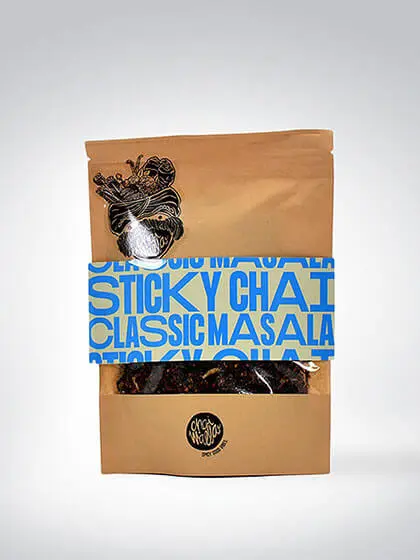
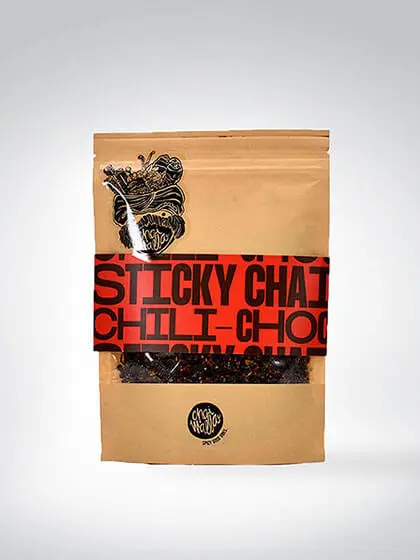
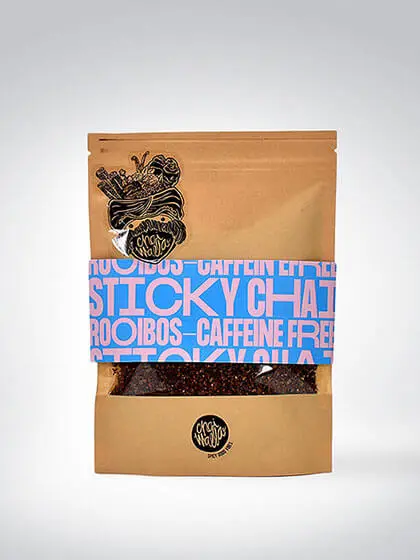
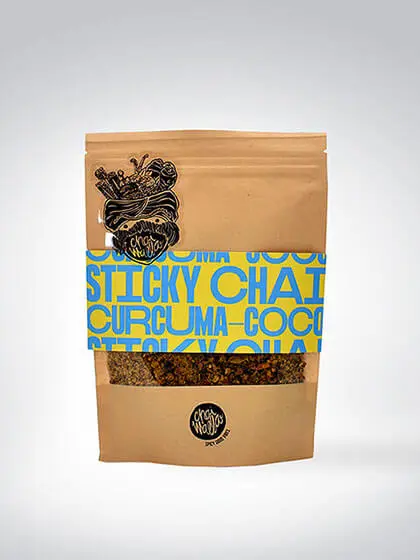
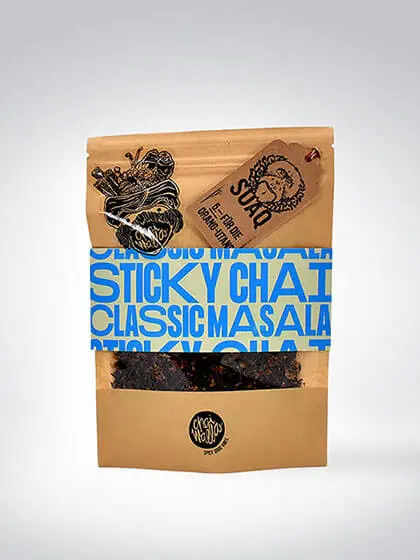
Super Angebote und tolle Qualität. Sehr feiner Kaffee